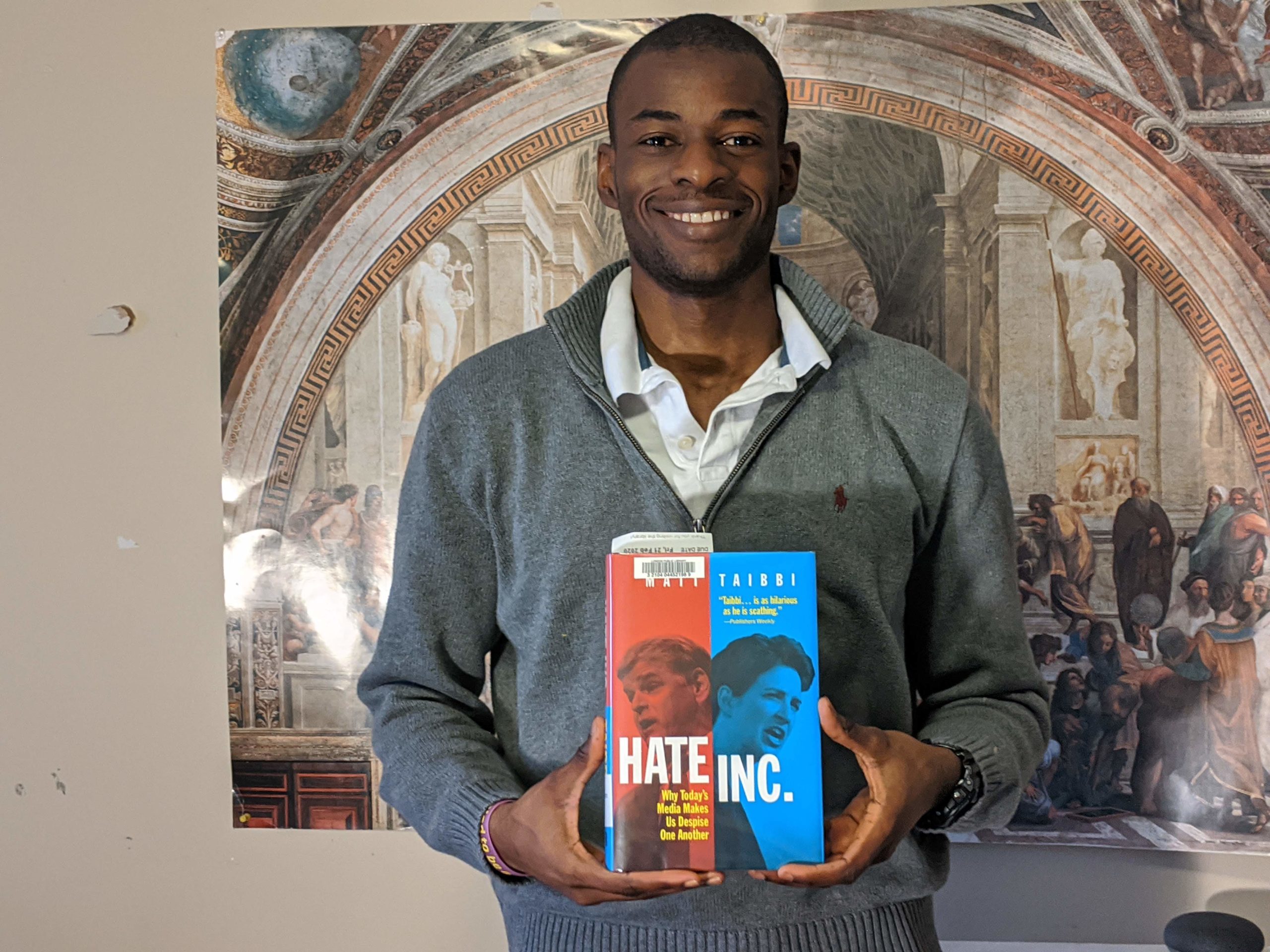
Your anger is the media’s opportunity
(My riff on Jeff Bezos’ famous aphorism: “Your margin is my opportunity”)
- Hate Inc by Matt Taibi is about how media companies, particulary, political media companies have a business model that is designed to get you angry and hate the other side.
- A really good book, but I ended up skimming a lot of it because I have been very fascinated by media for a long time so a lot of the topics in the book were covering things I already know.
- Pretty cool that he released his book through a series of newsletters on substack, very similiar to what we’re trying to do with the Atila Schools and Jobs ebook
- I have also been following Taibbi for a while and I am impressed at his ability to be extreemely honest and self-aware about the problems with mainstream media while also working for what is (maybe?) considered a mainstream media outlet in the Rolling Stone
Political Media wants to make money through influencenot Information
- I recall reading a blog post about Dominic Cummings, political strategist for Conservatives’ behind Leave Campaign and he mentioned that the real enemy the conservatives had to fight was the media and the Liberals are just a sideshow
- As much as I love free markets and capitalism, this book really highlights the problems with having a profit seeking corporation that is also providing a public service
- The classic example is CNN, I remember reading Call me Ted and Citizen Turner in high school, which was about the founder of CNN, Ted Turner
- I just keep thinking about how far CNN has fallen from it’s glory days
- The thing that is most amazing to me is the level of denial by people in the media industry, it seems to always be someone else’s fault
- There’s a really good quote by Scott Adams which in effect says: “the day the media business model changed forever, was when you could precisely track which storeis got the most traffic”
Both “left” and “right” media is broken and their differences are mostly contrived and arbitrary
- He also does a really good job of calling out the problems with both the left and the right, despite the fact that he seems to lean left himself
- His cover photo is Rachel Maddow and Sean Hannity who he believes are symbolic of the problems with modern day media
- I am a strong believer that the biggest divide in society is economic/class divide and all the other distinctions people use to fight between themselves is a distraction
- It reminds me of this tweet I saw once that said: “polls are not for information but to sway undecided voters who want to be on the winning side”, I couldn’t find a quote for it but the general idea is true
- He also calls out Nate Silver of FiveThirtyEight for being one of the pundits that got the Donald Trump election wrong because of statistical mdoels that didn’t account for the variability of people, then his new models for the 2020 elections are making the same mistake
- I didn’t really understand that part but it makes sense, Phillip Tetlock’s book Superforcasters (which I have yet to read, but has been recommended numberous times to me) talks about how bad political pundits are at making predictions.
- So the question, is why do we still listen to them?
- I think that political media is actually very similar to sports media, the only difference is that in political media human lives are at stake (sometimes in sports to though)
- It also seems that people don’t follow political media to get “facts” but they are usually looking for narratives that tell them what they want to hear
- So, a lot of Taibbi’s analysis seems to apply mostly to American media companies, but does Canada have the same problem?
- America media is probably synonymous with Canada and Western media
- I read more American news in a day, than I read Canadian news in a month (but it might be different for older genrations)
- I read a Steve Bannon interview some weeks ago and he mentioned that he’s “proud of the work” his team is doing in pushing far right media sites in foreign countries like France, Italy etc.
- Fortunately, it seems to me that Canadian media tends to be a lot less sensationalist and polarizing
- Though, there’s a high chance that I’m not the target demographic for sensational, clickbait, anger inducing news so it might have a large audience and I might just not be aware of it
- Overall, a good book, I skimemd most of it because this media is a topic I have been reading heavily for the last few years so most of the information wasn’t new to me
- Also my notes are not that comprehensive, compared to my other book reviews. They are probably better described as me going on tangents about the themes mentioned in the book.
- If you’re a “political junkie” or you find yourself having strong opinions on poltical issues that are of the variety: “my side is right and how can those idiots not realize they’re wrong”, I would encourage you to read [Hate Inc.](Hate Inc). If anything you will realize, that everytime you find yourself thinking: “wow, how can people be so dumb!” a company is making money from you having that very thought.
